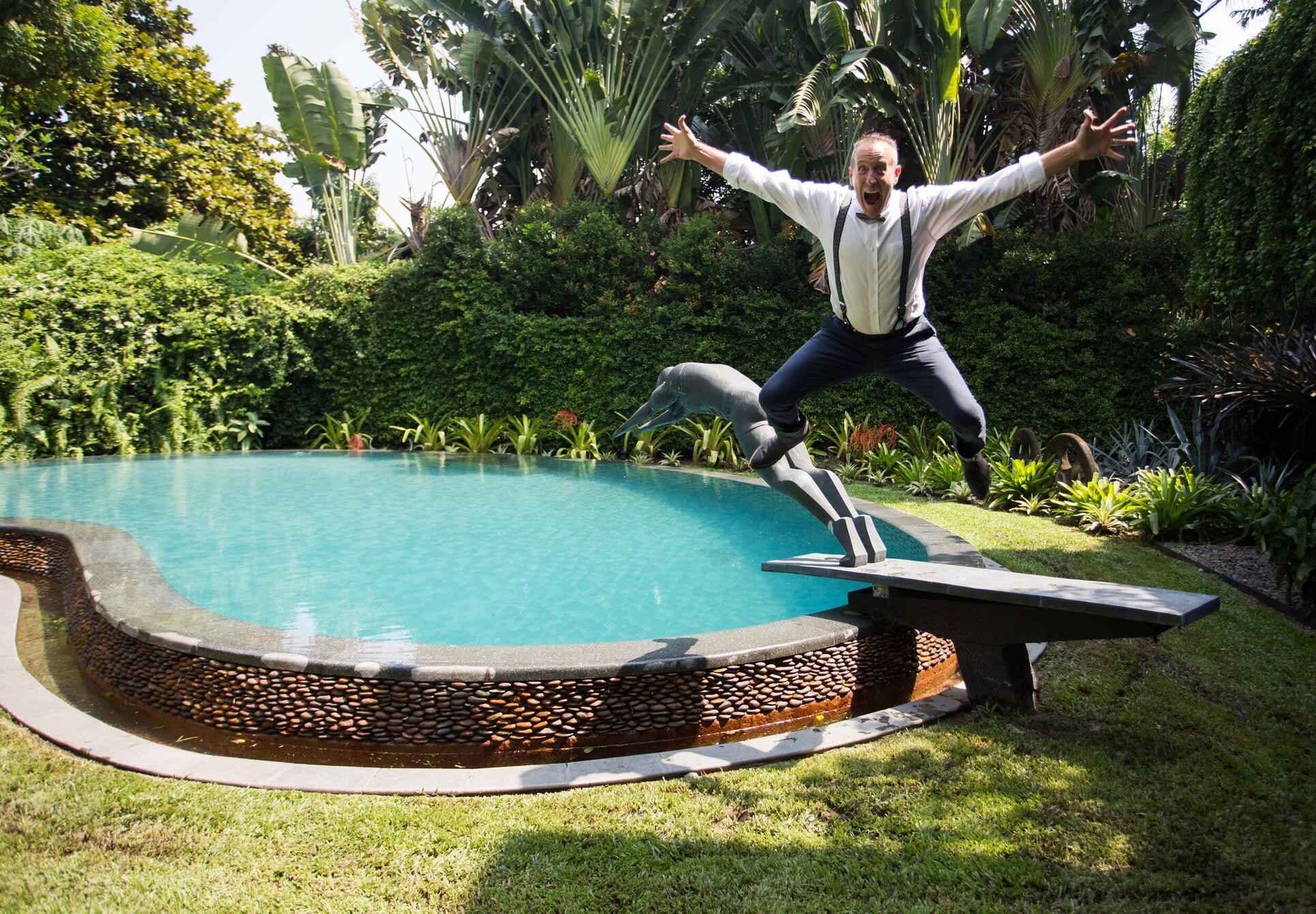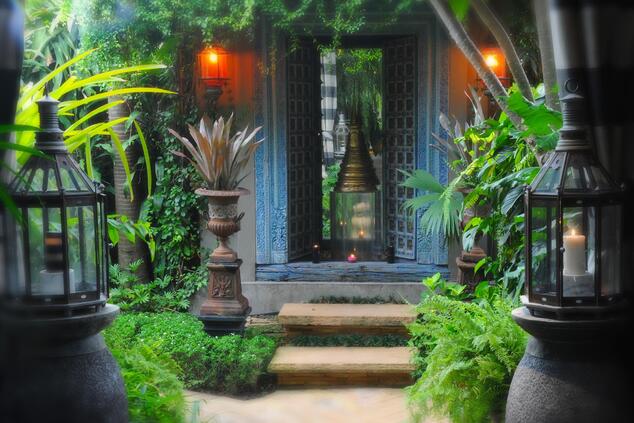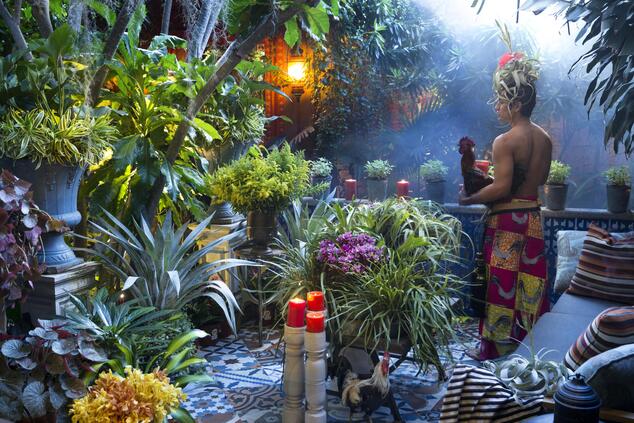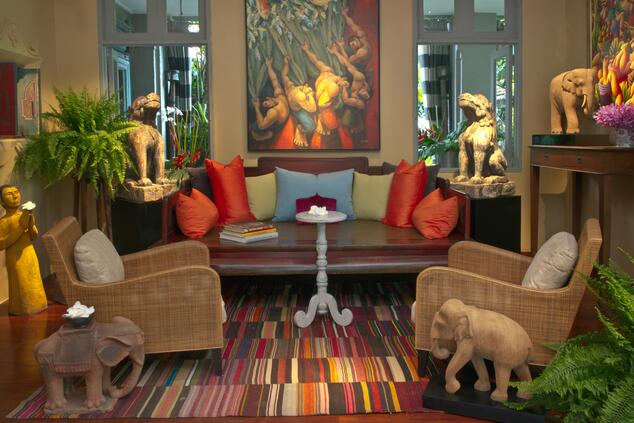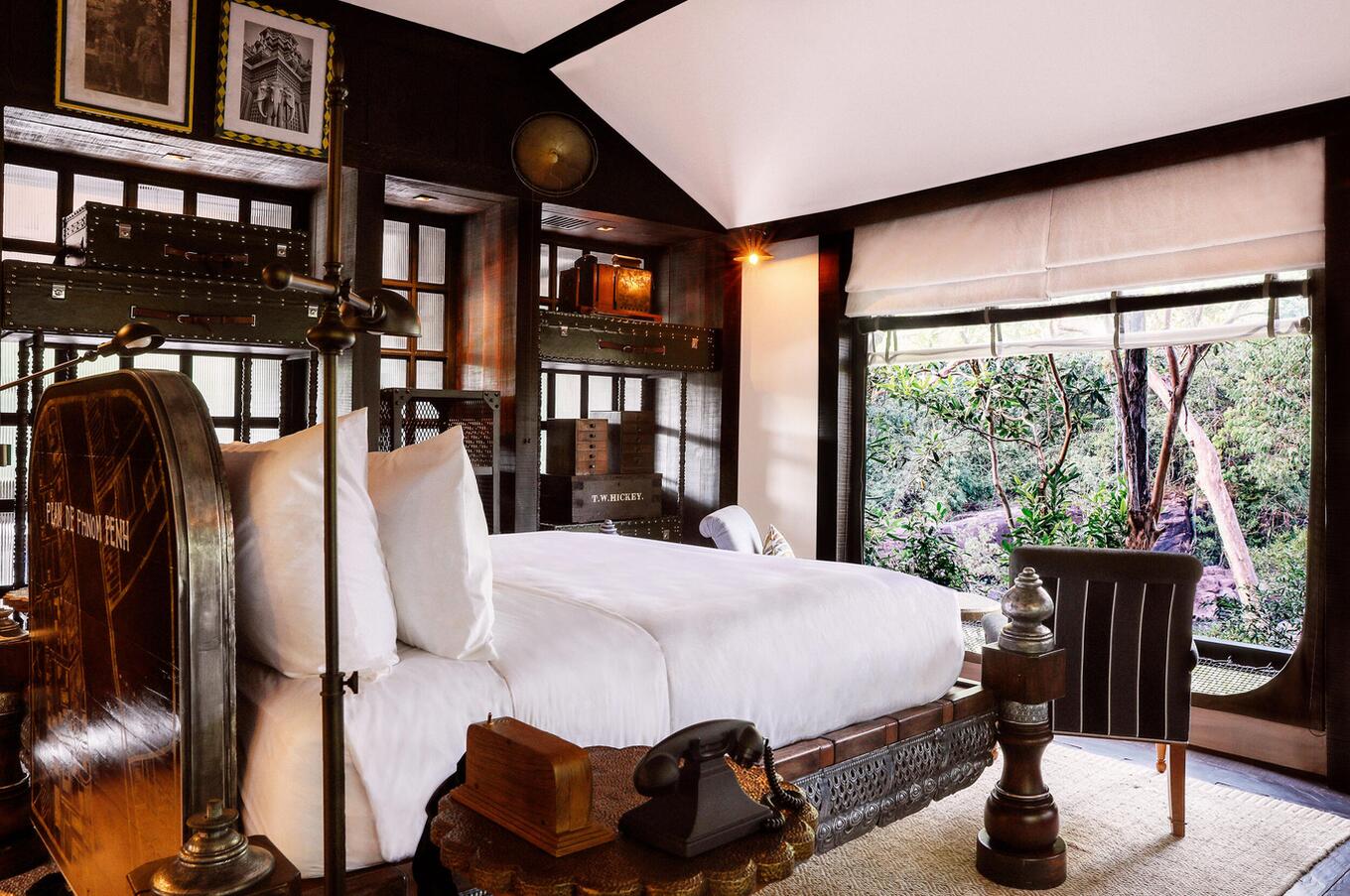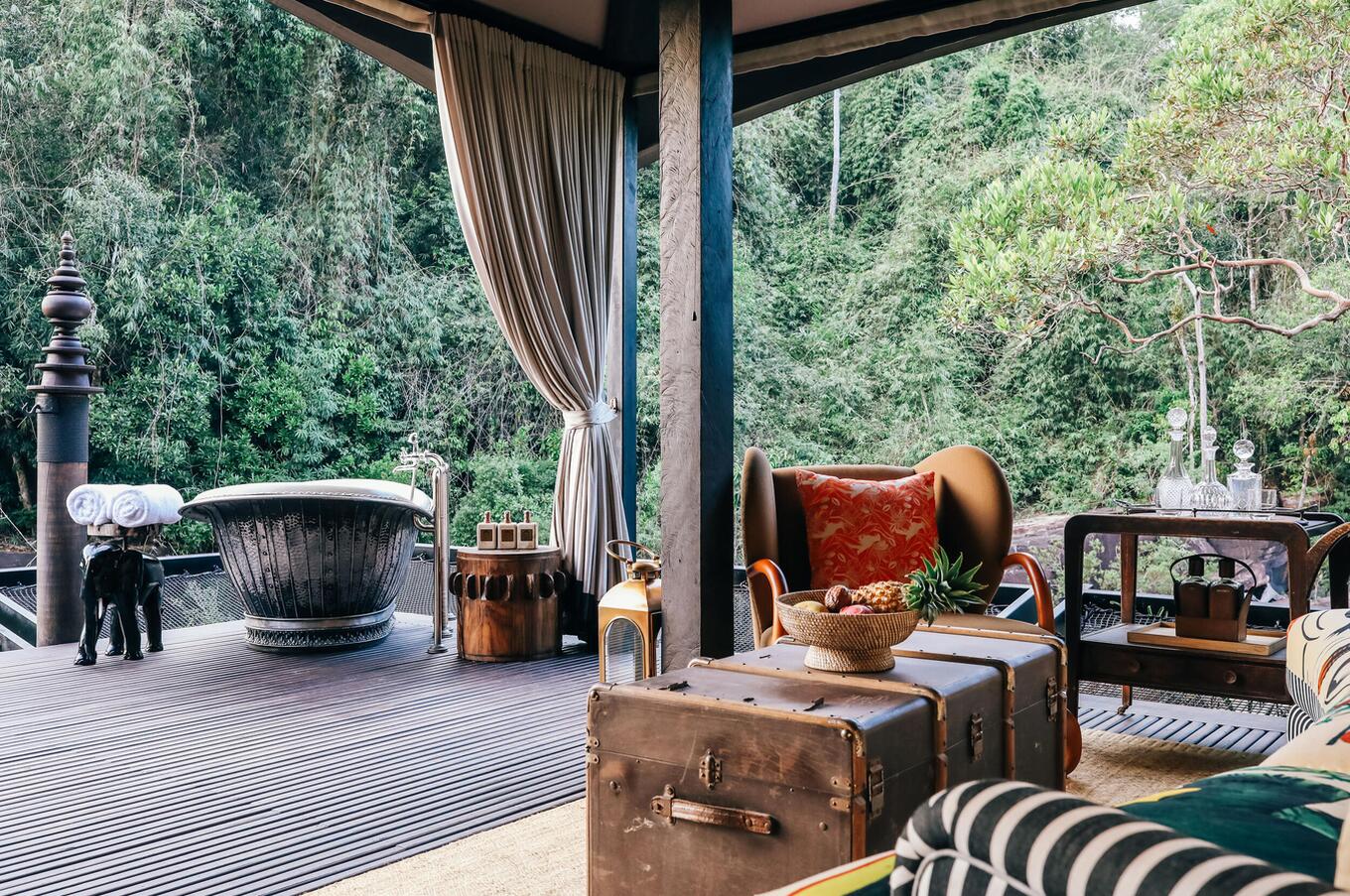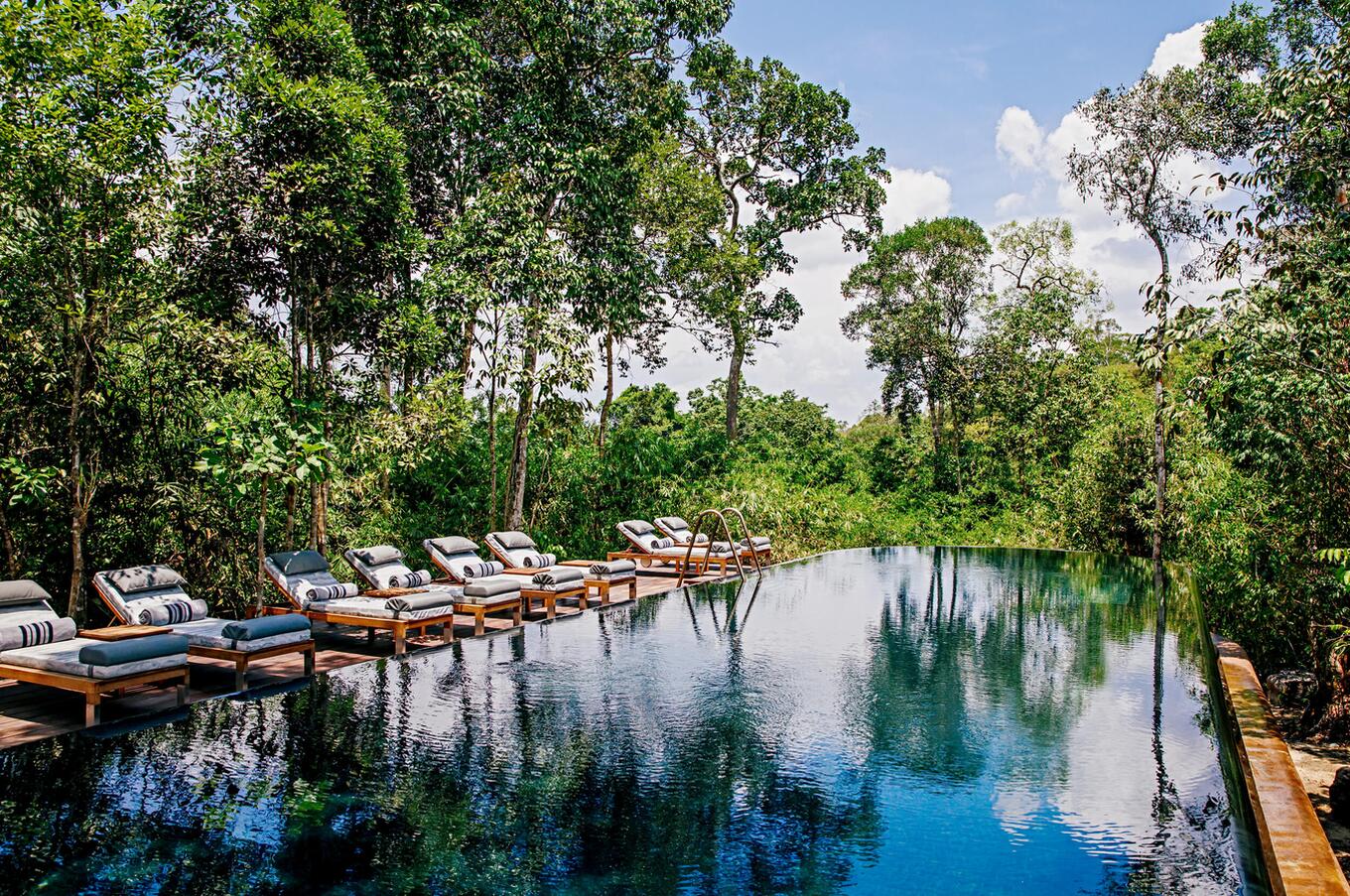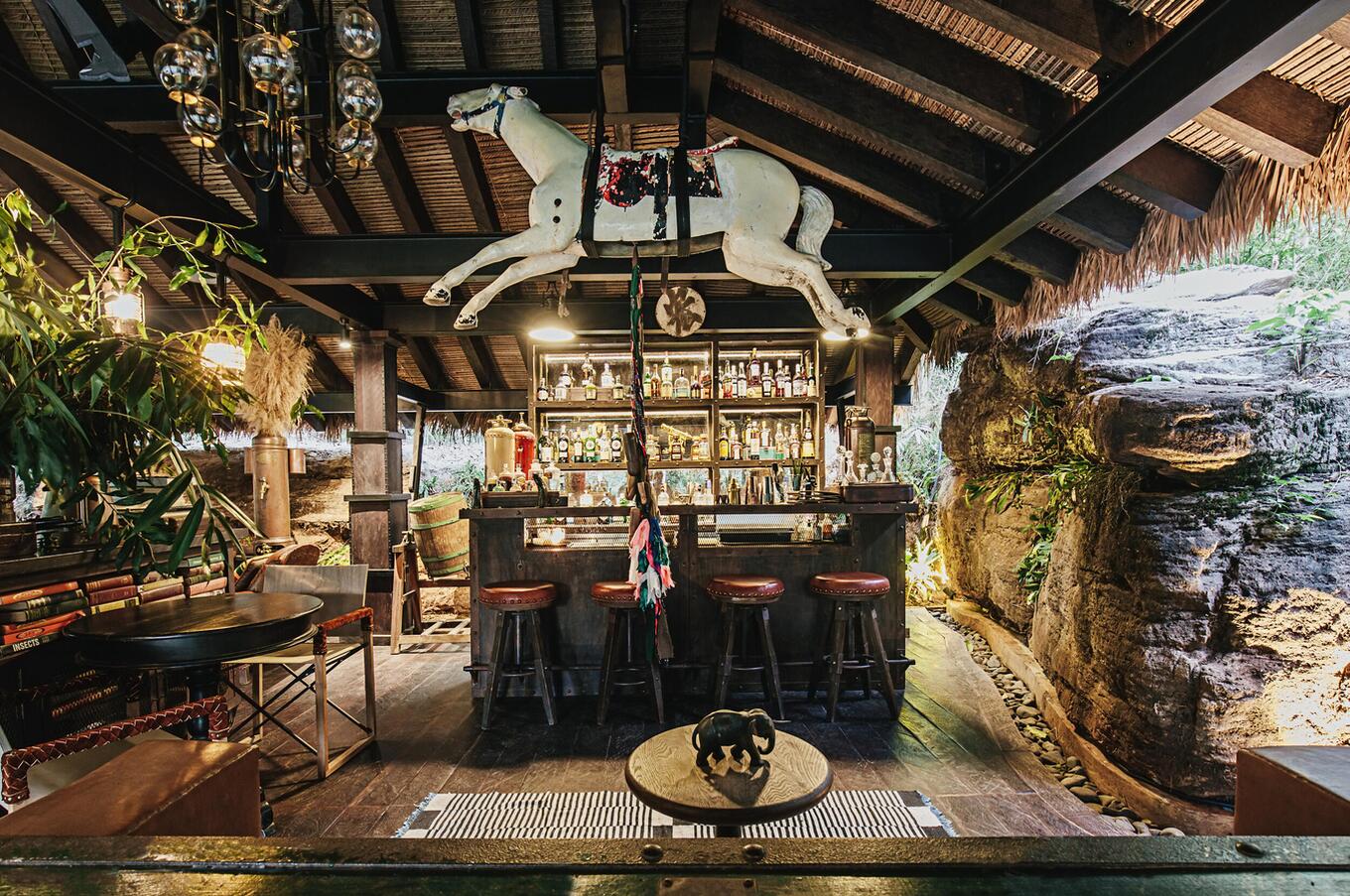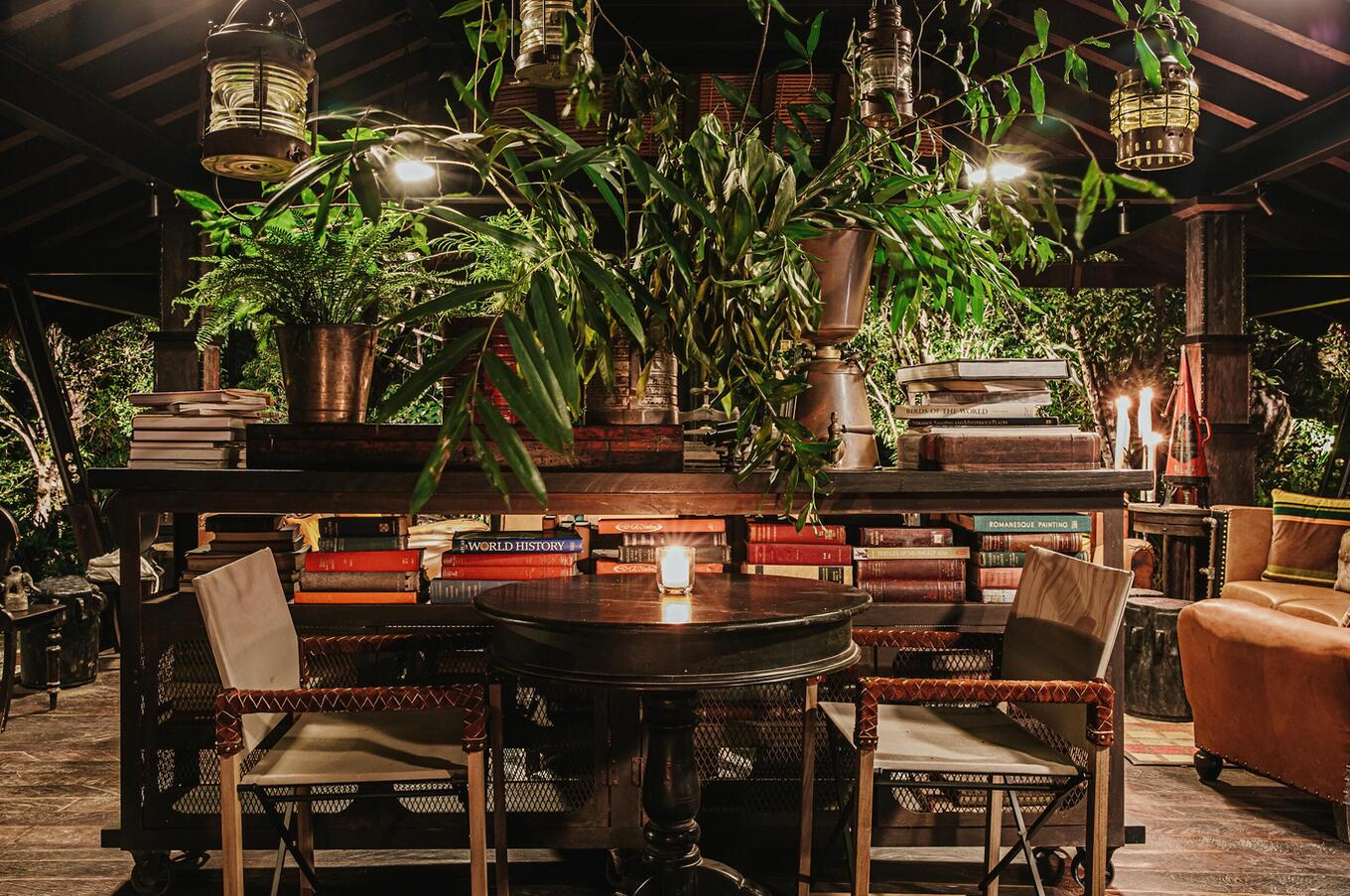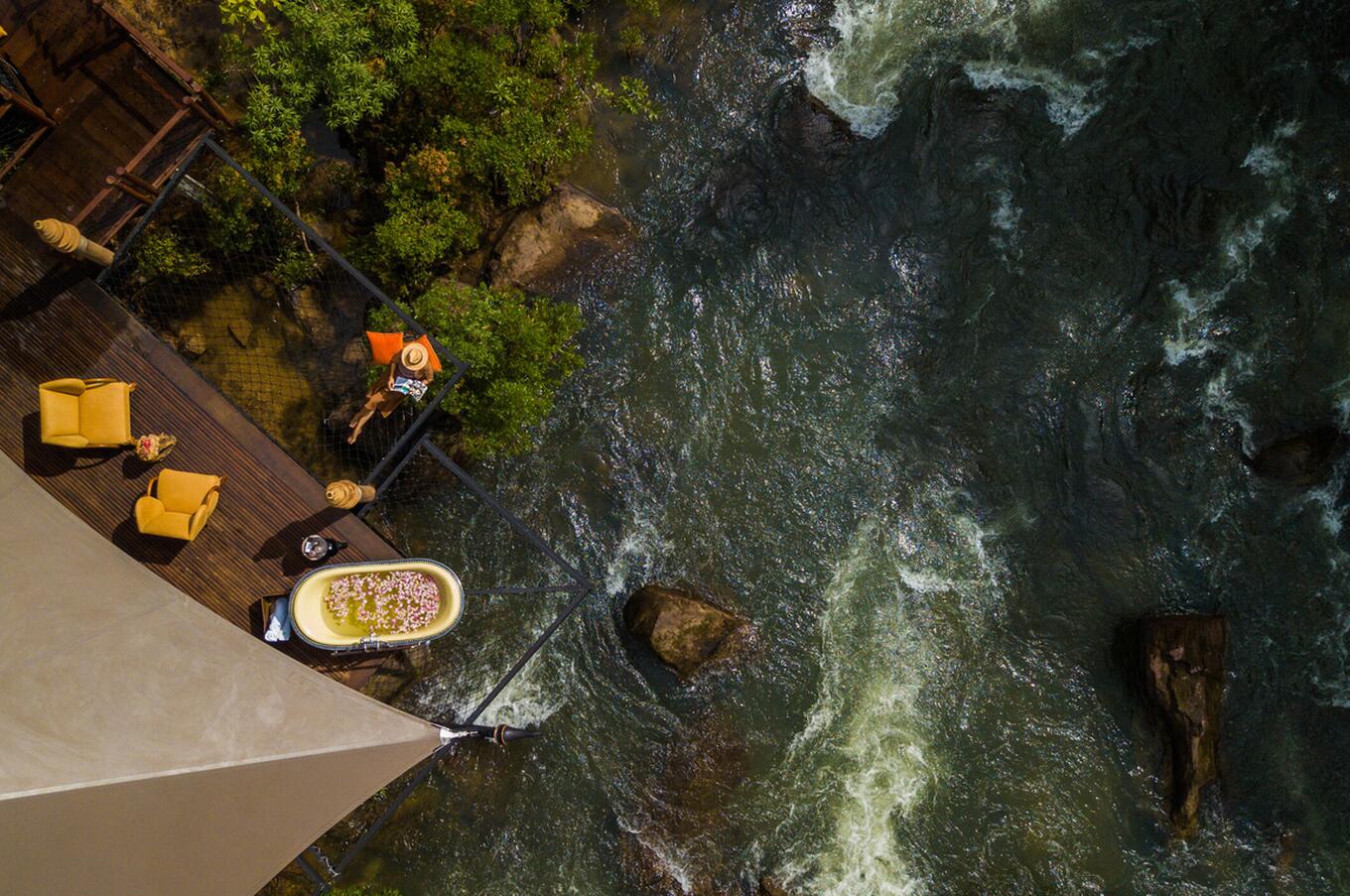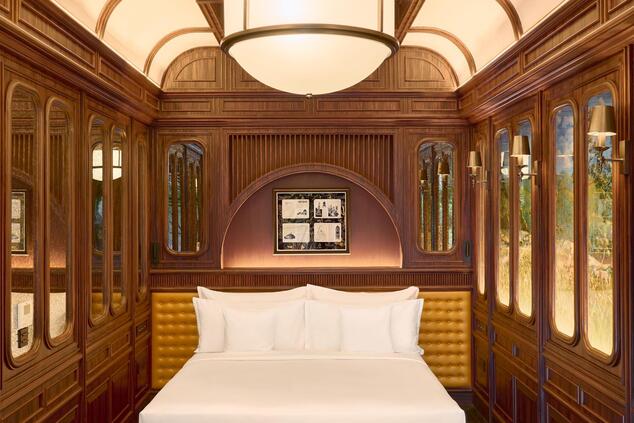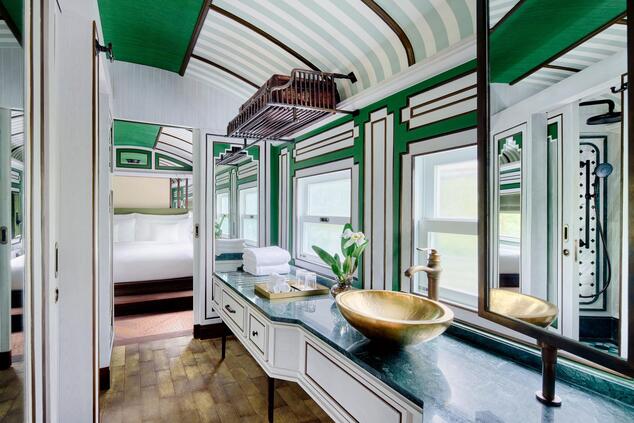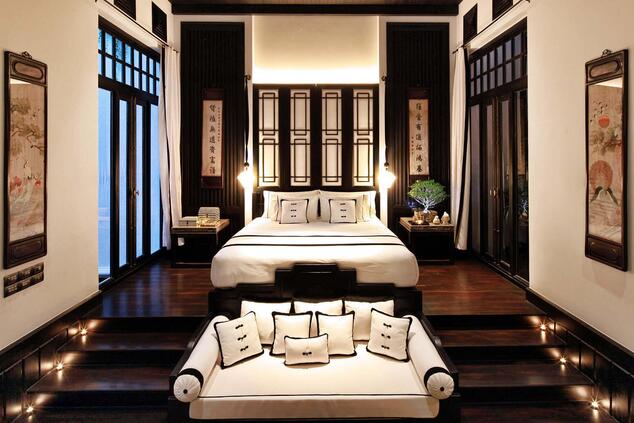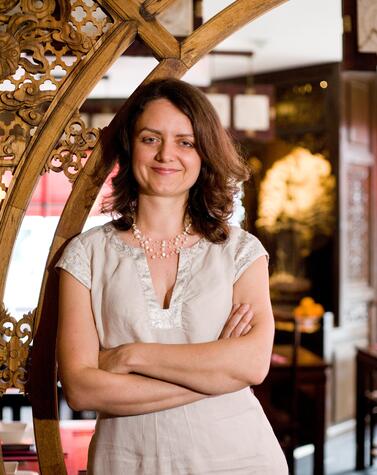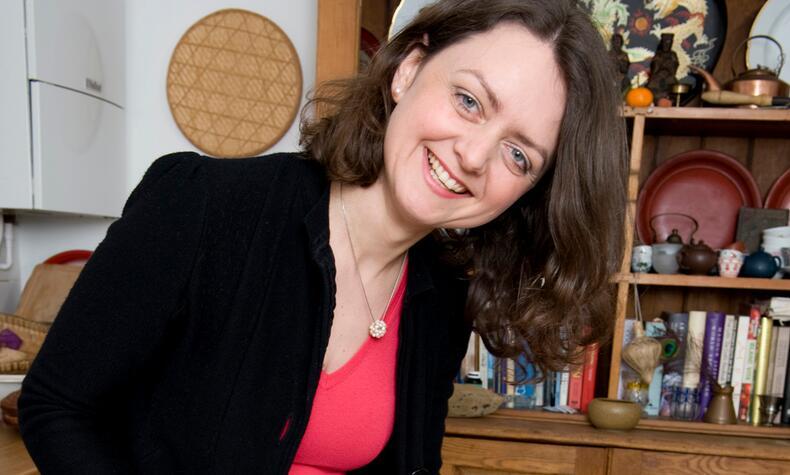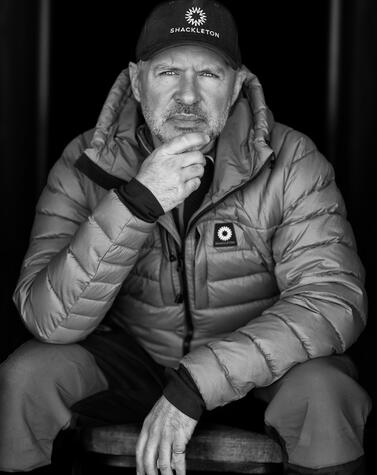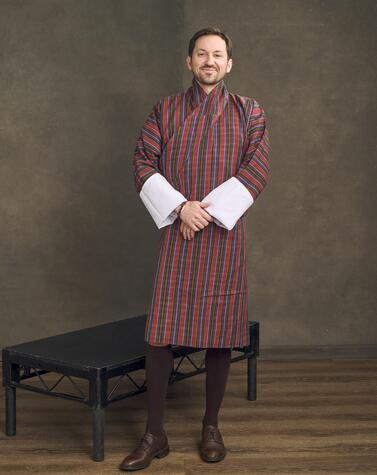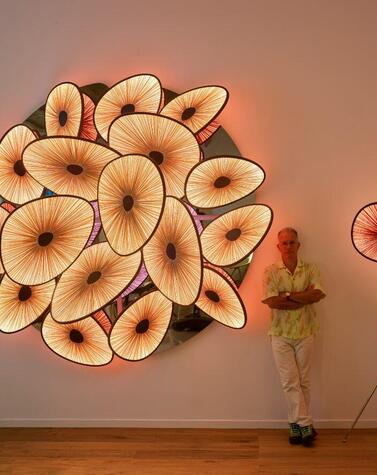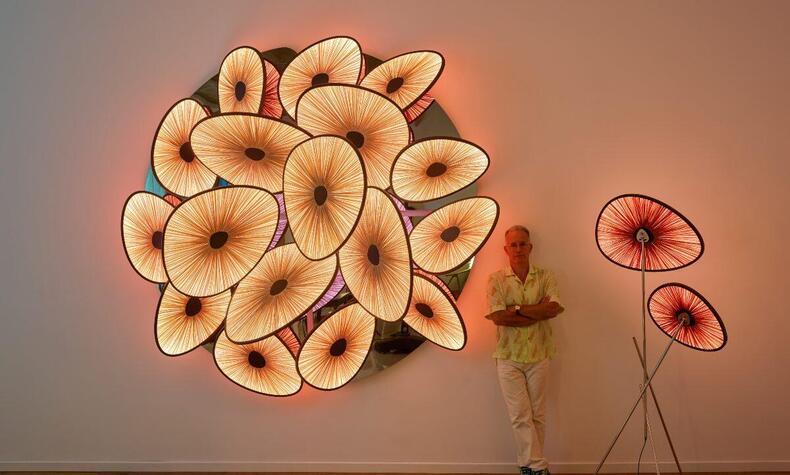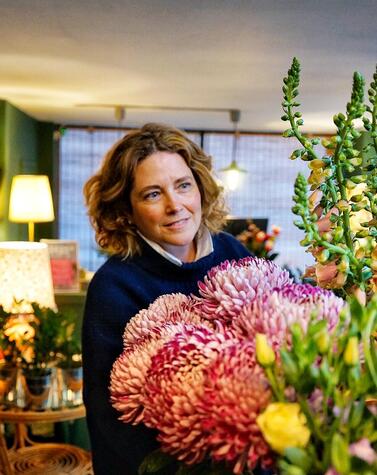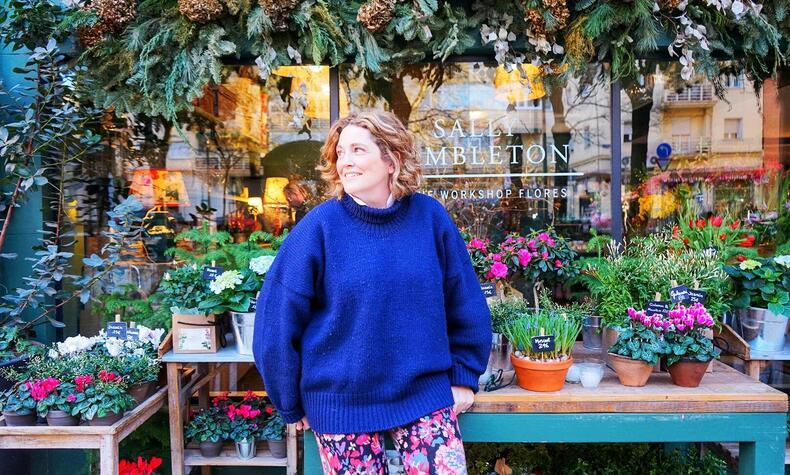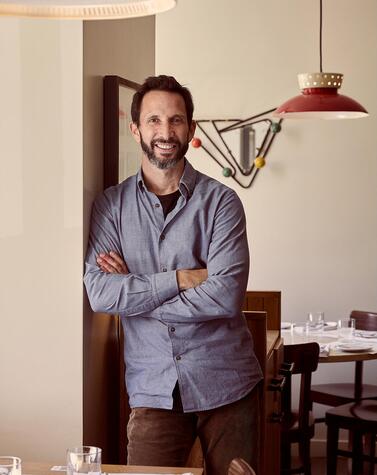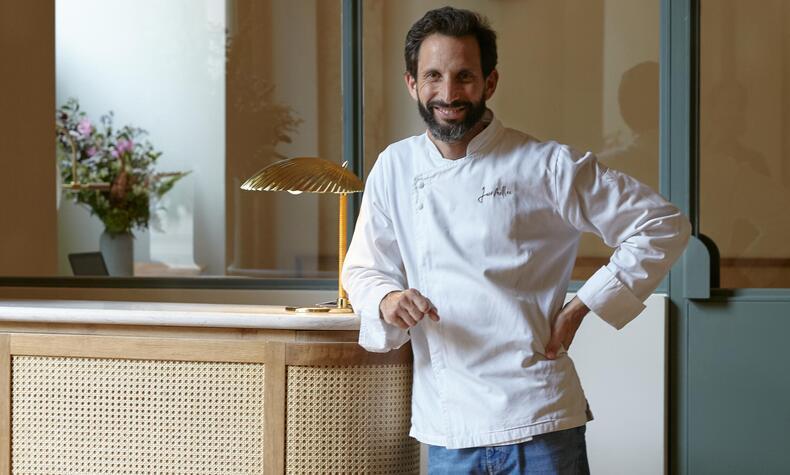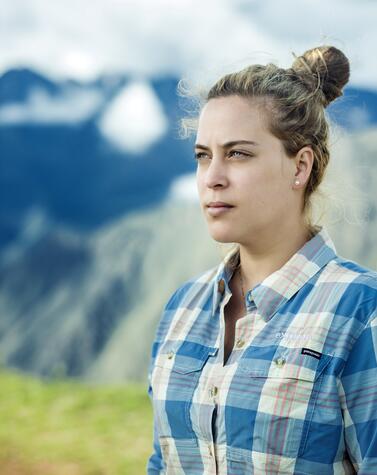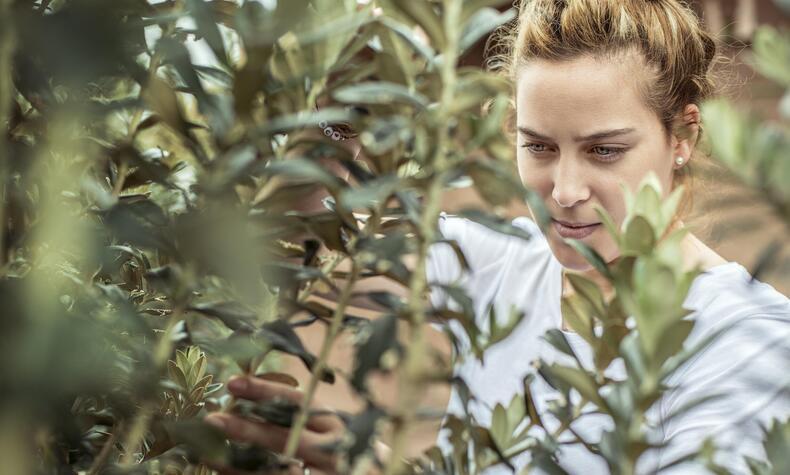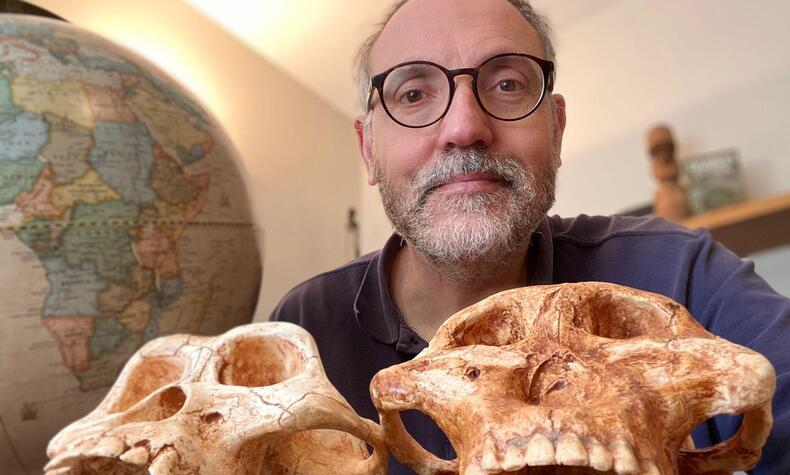Bill Bensley: "Nature is always the best designer"
Bill Bensley is known worldwide for his outstanding, unique, inspiring, and award-winning hotel, landscape, and interior designs and striking architecture. This American landscape and interior architect also defines himself as a conservationist and a passionate philanthropist. According to him, his main purpose in life is to enjoy the present, and to help those in need, animals, and the planet through conservation.
Who is Bill Bensley?
I consider myself a gardener, fisherman, architect, interior designer, lover of nature and, above all, an explorer of every corner of the earth I can reach.
You define yourself as a "Concerned Conservationist" and a "Passionate Philanthropist," how do these concepts relate to your work as a hotelier, landscaper, and interior designer?
As a designer and hotelier, I'm not interested in building hotels with the purpose of filling rooms. There are already millions of hotels in the world, many with no purpose when in reality the hotel industry can do so much for the places in which it operates. Each of my projects must have a positive impact, whether in terms of conservation, sustainability, or supporting the local community. Shinta Mani Hotels is a key example of this.
What does creativity mean to you?
While most people may think that creativity comes easily? In reality, a creative hotel takes about 5 years on average to design and includes over 500 meetings and a minimum of 5,000 sketches or designs.
In 2020, BENSLEY Design Studios celebrated its 30th anniversary. Throughout this period, you have won many prizes based on design, leadership, and sustainability. Which of these 3 words is the most significant for you, and why?
Sustainability, without a doubt, because all our work is centered around it.
Sustainability is growing to become another empty word, trashed already by all industries and brands. What is sustainability to you personally and how do you think it will evolve?
As a kid, my family had a small farm where we were practically self-sufficient. I raised bees, quail, chickens, ducks, rabbits, mushrooms, a variety of vegetables, and, of course, a lot of compost. We traveled with our small family motorhome almost every weekend to a nearby campground and, in the summer, we traveled all over the United States, exploring nature and never leaving behind more than a footprint, nor taking anything with us. We learned to respect nature.
I grew up feeling a great love for nature. It makes me smile to hear the word sustainability used so often these days as if it were a new idea! I hope it evolves to become second nature to all of us, observing our daily habits and changing as best we can, where we can.
- Baan Botanica is the name of Bill Bensley's home in Bangkok. —
- The name of the house is a tribute to the more than 1,500 species of plants that grow in the garden. —
- Bensley sees his home as his refuge, which he shares with his partner and their 6 Jack Russell dogs, as well as his creative laboratory and source of inspiration. —
- The house is filled with exotic objects and memorabilia from Bensley's many travels around the world. Photos: Bill Bensley.
What role do conservation and sustainability play in the hotels you design?
A big role. At Shinta Mani Wild they were the raison d'être for the tents as a means to generate the funds to protect the precious forest in which the camp is located. This mentality extends to all our projects.
You state that sustainability in the hospitality industry is based on 3 fundamental pillars: building with purpose, thinking locally and sustainably, and building wisely in terms of building materials and energy saving. Will we see this philosophy applied to most hotels and resorts around the world in the future?
In my studio BENSLEY's no doubt, as this is how we have always worked. I think more operators are seeing that thinking locally and sustainably is good for both their brand discourse to guests and their budgets! consumers care about sustainability and the hospitality world better get to work on it!
What is your deepest purpose in life?
My deepest purpose in life came through Shinta Mani, the good work we do through conservation and helping people out of poverty.
Why is this connection to nature so important in your work?
Before I graduated in hotel design, I was a landscape architect. I learned the principles of land management, and those principles apply to each of our projects. When I work in a natural environment, I know I can only make things worse, because Mother Nature is the best designer. No matter how beautiful my hotel or whatever it is, it can never compete with nature, so damage control is the key. Always let nature take pride of place.
What are your sources of inspiration or "muses" when you think about the design of a hotel or a landscape?
I get inspired everywhere, and especially where I least expect it. As for muses... Kelly Wearstler is a design star, Kit Kemp is lovely and there's nothing Frank Lloyd Wright can't design. But, if any doubt, my biggest muse is my own husband, Jirachai.
What role does the past play in inspiring your future?
When I take on a new project, one of the first things I do is study the history of the place. What buildings, what people, what events might have been part of it? Often the DNA of the project comes from the place itself.
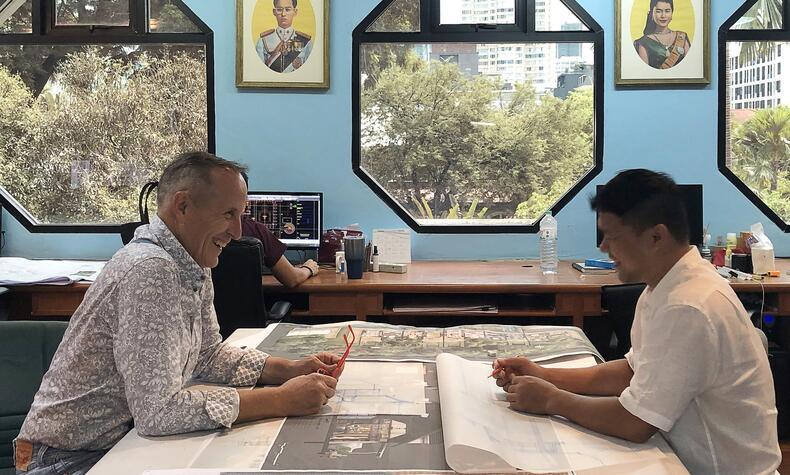
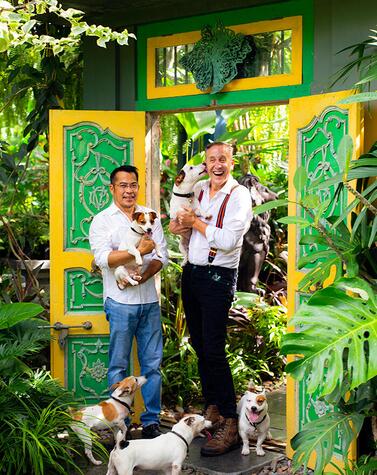
Another of your passions is philanthropy, which you practice through the Shina Mani Foundation in Cambodia. How did this foundation come about and what are its goals and challenges?
It all started with a trip to Cambodia in the 1990s. My dear friend Sokoun Chandpreda took me to meet a family he knew. At the time we were working on a hotel project in Siem Reap, and he had just set up the Shinta Mani Foundation to help restore Cambodia after the devastation of the Khmer Rouge. He took me to meet a young family with six malnourished children living on a pile of sticks and a single mother killing herself trying to provide for them. It almost broke my heart and I committed to help them.
We raised enough for a house, chickens, and a vegetable garden, a sewing machine so the mother could have a means of trade, and bicycles so all the children could go to school. Living in Bangkok, where we have so much, it would have been a mistake for me not to lend a hand to that family. I have continued in that vein for the past 30 years, working with the Shinta Mani Foundation. We've managed to set up a catering school, and a seed garden to grow better food, distribute clean water through water filters and wells, build houses, fund schools, and provide bicycles and medical care - over 9,000 check-ups so far. I don't go a day without thinking about that family: my father always said that charity begins at home.
My life changed again 6 years ago when Sokoun and I bought a piece of the Cardamom jungle to prevent it from becoming a tin mine. Cardamom is one of the last great wilderness areas in Southeast Asia and I find it incredible that we were able to buy a piece the size of Central Park of such a precious natural heritage. We soon realized that the forest was under attack by poachers and illegal loggers. So we set out to find a sustainable way to police and protect the land.
The answer was Wildlife Alliance, a private army of rangers that patrols the forest and has the authority to chase offenders, confiscate chainsaws, release animals, and protect hundreds of acres of land. Their good work is funded by Shinta Mani Wild, our 15-tent adventure camp located in a small corner of the forest, built without cutting down any trees and providing work for many former poachers or loggers who had no alternative in such a remote place.
Another of your passions is painting where you define yourself as an "outsider artist". What does this term mean to you? What are the main themes of your works?
I am an outsider because I have never followed the conventional path of most artists, who attend an art school and learn from all the masters. My friend and artist Kate Spencer (trained in Italy) encouraged me to start, and since then it has been a self-taught journey, observing artists I admire and trying to learn from their work. I paint my friends, my travels, my dreams, what I think of the world... and 100% of the profits go to the Shinta Mani Foundation and Wildlife Alliance, two causes very close to my heart.
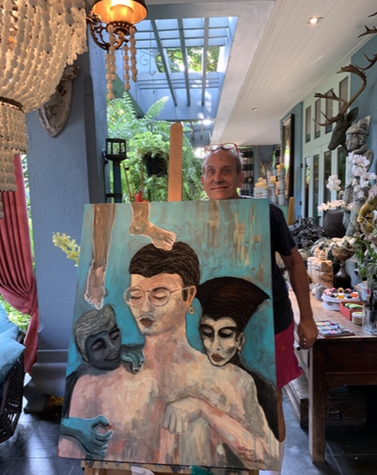
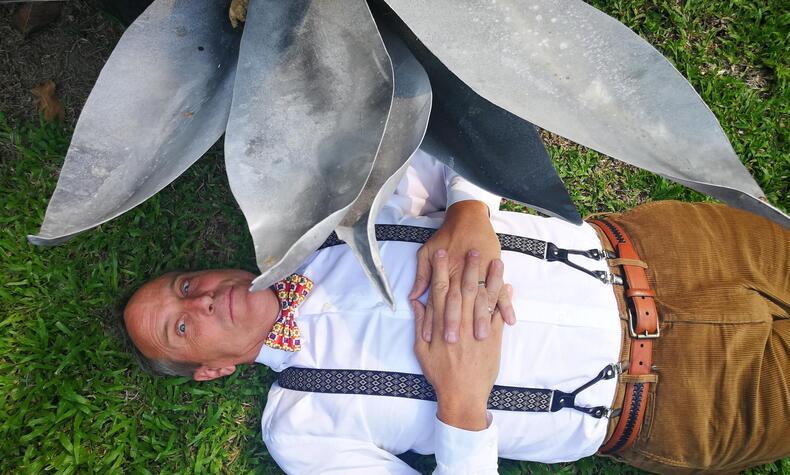
When you stay in a hotel, what do you look for? What makes a hotel stay perfect for you?
That it's truly sustainable and has a purpose, not that it's green. Lots of personality and unique experiences to write home about.
How does the design of your hotels influence the guest experience?
If we do our job well, our design will intertwine with all aspects of the stay, as we don't just focus on the built hotel, but also the staff uniforms, the menus, the music, and even the tableware and amenities that the guest finds in their room upon arrival...
If location and resources were not an issue, what would you create next?
What would you create next? Ha! Good question, as I dream about those projects all the time. Since I'm doing this interview with you in Europe, I dream of restoring a 15th-century castle in Spain or Italy with 100% recycled materials. I firmly believe that new and expensive does not guarantee a good product.
- One of Bensley's latest projects has been to restore a series of old train carriages and convert them into a luxury resort in Thailand's Khao Yai National Park —
- Rooms and bathrooms have been integrated into the interior of the train carriages —
- The Siam, an exclusive urban resort on the banks of the Chao Phraya River in Bangkok —
- Bensley's style lives up to one of his mantras: "The weirder, the better".
What does luxury mean to you?
Being loved by my dogs, comfortably enjoying nature in solitude, swimming naked under a waterfall... and above all, being able to help others.
Can travel and tourism change the world?
Absolutely. The Shinta Mani Foundation and our hotels in Cambodia are a case in point.
How many hotels have you already designed in your lifetime?
I've almost stopped counting... more than 200.
A destination you would always go back to?
To Mongolia. Every summer.
A pending trip
A train trip to as many countries ending in "stan" as we can.
And... your next trip
Papua and Indonesia...

